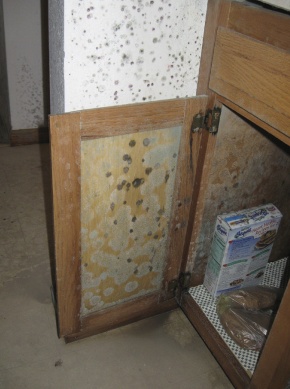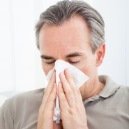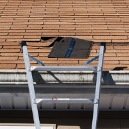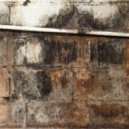Find a pre-screened local mold removal specialist Free Estimate
Find a Mold Specialist Now
Click or Call, Toll-Free 24/7
Aspergillus Mold In Your Home
Aspergillus mold is a very common type of mold that grows both indoors and outdoors and is found virtually all over the world. Most people who breathe in this type of mold have no reaction to it at all. However, for those people who are allergic to the mold aspergillus (a condition known as allergic aspergillosis), it can cause an immune response in the body that may include reactions such as high fever, asthma attacks, and in extreme cases, coughing up blood and mucus (referred to as hemoptysis).
Complications of Allergic Aspergillosis
Exposure to the mold aspergillus usually causes only minor symptoms in healthy adults, but some people are more susceptible to the health problems related to this type of mold. Most of these health problems are related to respiratory problems. In extreme cases, infections can spread rapidly to internal organs (the brain, heart, kidneys). Those individuals at the greatest risk include the elderly, infants and young children (because their immune systems are not yet fully developed), people with disorders of the immune system (AIDS, SCID, etc), individuals already suffering from asthma, pregnant women, and people who have been diagnosed with cystic fibrosis. In addition, any individuals recovering from serious illnesses or surgery, especially cancer or cancer chemotherapy treatments, are also at increased risk. Even healthy adults can be negatively affected by extended exposure to aspergillus mold.
The Mayo Clinic website lists several serious health problems that can result from exposure to aspergillus mold, including:
- Bleeding in the lungs, which can be fatal.
- Infection and destruction of facial bones – when aspergillus causes a sinus infection, the infection can spread to the facial bones around the sinus cavities and if not treated promptly, can damage and destroy the bones.
- Sepsis – this is a serious infection that spreads throughout the body, ultimately causing organ failure, which can be fatal.
- Shortness of breath, fever and chills
Treating Allergic Aspergillosis
If you’re experiencing health problems you think may be related to mold exposure, see your doctor to get an accurate diagnosis and treatment. Your doctor may order a variety of tests to determine if exposure to aspergillus is causing your illness. These tests could include a chest x-tray, a test of any sputum (mucus coughed-up from the trachea and bronchi), and blood tests. In some more serious cases, a biopsy of your lungs may be recommended.
If it is determined that you’re experiencing symptoms caused by exposure to aspergillus, your doctor may prescribe oral steroids to help your breathing and to prevent or reduce the severity of your asthma attacks. Your doctor may also prescribe antifungal medications like amphotericin B or voriconazole to fight infection in your lungs, but you’ll need to be carefully monitored by your doctor while taking these drugs because they can cause kidney and liver damage in some people.
In order to recover fully from health problems related to exposure to aspergillus mold, you will need to avoid any further exposure. If high concentrations of this mold have been found in your home you should consider staying away from the contaminated areas, or if necessary, relocate somewhere outside the home until remediation procedures can be completed. If you must return to your home for any reason, your doctor may recommend wearing a respirator or a special face mask to prevent inhalation of any additional mold spores. However, to prevent symptoms from worsening, it is important to have all mold removed from your home without delay.
We recommend that clearance testing be done to be certain that all traces of mold have been removed. You can have a certified professional come in to test your home for mold. For a list of certified mold testers in your area, follow the link.
Aspergillus Mold Removal
If you’ve got aspergillus mold or some other type of mold growing in your home, we recommend calling in a mold removal professional for a free consultation. The U.S. Environmental Protection Agency (EPA) recommends hiring a professional to do the mold removal for you if you have mold covering an area greater than ten square feet, if you have mold in your household heating and ventilation system, or if you have health problems that might be made worse by exposure to mold.
Safe and complete mold remediation can be a complicated task for the do-it-yourself person. If you decide to attempt a mold remediation, containment should be one of your primary concerns. Before attempting any mold removal the areas contaminated by the mold must be isolated and contained to prevent the unwanted cross-contamination of unaffected areas in your home. Mold spores are easily disturbed and made airborne. Proper containment must include installing barriers and establishing negative air pressure BEFORE any attempt of the mold’s removal.
Also, protective clothing should be worn. This should include tyvek suits that cover your head and shoes. Full face respirators or face masks should be worn (if using a face mask also wear goggles for eye protection) to eliminate the possibility of inhaling any disbursed mold spores (the eyes, nose, and mouth are dangerous entry points for mold spores). Latex or rubber gloves should be worn under work gloves to protect your hands.
All materials that are affected by the mold must be removed and bagged for disposal BEFORE being removed from the contained areas. After removal, any remaining materials, structural or personal, should be vacuumed with a HEPA-rated vacuum and wiped down with an anti-bacterial detergent solution and allowed to dry.
As you can see, aspergillus mold remediation consists of a lot more than just removing the mold itself. You need planning, knowledge, and the proper techniques and equipment. Consulting a qualified expert is a smart way to go and you should consider getting expert advice before you make a mistake that could make the situation worse.
Even if you plan on handling the mold removal yourself, though, you can get some expert advice at no cost to you by scheduling a free consultation with an experienced professional. Follow the link for a list of mold removal professionals offering free consultations in your area.
Return From Aspergillus Mold To Our Types Of Mold Page
Ref:
Mayo Clinic: Aspergillosis
Free Home Inspection By A Mold Removal Specialist
Search This Website
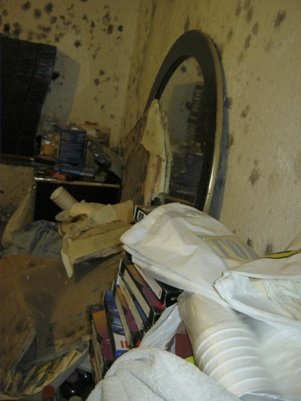 Aspergillus mold in storage room
Aspergillus mold in storage roomRecent Articles
-
See Our 5 Recommended Mold Removal Companies in Covington, KY
Apr 16, 25 12:59 PM
-
See Our 5 Recommended Mold Removal Companies in Wheaton, IL
Jun 20, 24 10:33 AM
-
See Our 5 Recommended Mold Removal Companies in Aberdeen, SD
Oct 08, 21 04:05 PM
